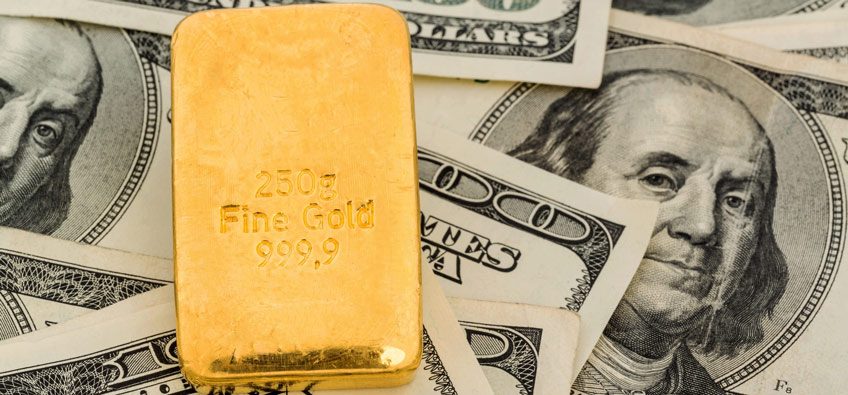
3 Reasons for Gold to Go Up

There are a lot of reasons that real money – gold – outperforms irredeemable money created out of thin air.
But for today, here are three news stories that spell higher gold prices in the immediate future.
Reason Number One: The US government, hopelessly in debt, is recklessly piling up more debt by the hour.
Total federal debt, $22,022,825,000,000, is more than 100 percent of total US productivity. But that is not enough to stop Washington’s deficit spending.
The Treasury estimates that the national debt ceiling will have to be raised sometime around October. Nancy Pelosi thinks it may have to be raised in August to avoid a federal default.
Reason Number Two: The world’s central banks continue to ditch the dollar.
This is a story we’ve highlighted many times, here, here, and here.
The implications of this global “de-dollarization” are so far-reaching that we can hardly believe it receives such little attention.
We’ll have more to say about this soon, but just to share one story that captures the megatrend, Poland’s central bank announced last week that it has added 100 tons of gold to its reserves since the beginning of the year. That is four times what it added to its reserves last year.
Those willing to read between the lines will see that suspicions about the reliability of the international dollar-reserve monetary system are running so high that countries are not just adding to their gold holdings. They are bringing their gold home from accounts at foreign institutions. For example, at the same time Poland is adding aggressively to its gold reserves, it is repatriating gold that has been held in its accounts at the Bank of England.
Reason Number Three: Countries around the world are creating institutions to allow them to circumvent dollar-denominated financial institutions.
US control of the international payments system enables it to enforce sanctions against foreign countries, and then to sanction countries that evade existing sanctions. The proliferation of these US sanctions has spurred the development of non-dollar, non-US settlement alternatives of foreign transactions.
Since the Iraq war, a host of new bi-lateral and multi-lateral trade agreements have sprung up among nations. But most significant is the recent announcement by British, French, and German officials that a new system that will enable them to bypass the US SWIFT payments system is now operational. The new system, INSTEX, will initially allow countries to circumvent the US and continue to trade and settle accounts with Iran.
The long-term consequence is to sharply lessen the world’s reliance on the dollar. The dollar reserve standard that has prevailed since the end of World War II has added marginally to the purchasing power of the US dollar. A dwindling reliance of the dollar will have the opposite effect of diminishing the dollar’s purchasing power.
It is our hope that these three news stories will help our clients and friends read the signs of the times and take steps to protect themselves from potentially cataclysmic changes in the dollar and its value.

